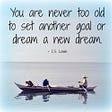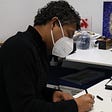Top Lawyers: Gustavo Mayen On The 5 Things You Need To Become A Top Lawyer In Your Specific Field of Law
An Interview With Chere Estrin
Constantly be a mentor. If you are not teaching the next generation, you are doing a disservice to yourself, the next generation, and your community. As much as I can, I try to have an intern, and try to focus on teaching the practical and hand-on lessons, so that they too can be successful. I also volunteer to judge local competitions.
The legal field is known to be extremely competitive. Lawyers are often smart, ambitious, and highly educated. That being said, what does it take to stand out and become a “Top Lawyer” in your specific field of law? In this interview series called “5 Things You Need To Become A Top Lawyer In Your Specific Field of Law”, we are talking to top lawyers who share what it takes to excel and stand out in your industry.
As a part of this interview series, I had the pleasure of interviewing Gustavo Mayen.
Owner of the Law Office of Gustavo Mayen, who came to the U.S. at 10 years old, and is a Marine combat veteran. He is now a lawyer that practices litigation in the Boston area, and also does pro-bono veteran benefits appeals. He obtained his law degree from Western New England University, School of Law, and also obtained his MBA from Babson College.
Thank you so much for joining us in this interview series. Before we dig in, our readers would love to get to know you a bit more. What is the “backstory” that brought you to this particular career path in Law? Did you want to be an attorney “when you grew up”?
Thank you so much for having me. I did not want to become a lawyer, I just wanted to be someone that made a difference. Part of that is because I never met a lawyer growing up, as a matter of fact, I had a humble upbringing. But I took advantage of all the opportunities that were given to me to be where I am.
I initially wanted to go to law school to do immigration, being the first generation American. But while in law school, an alumni gave a talk and discussed the different ways to impact what is important to you, and I know I wanted to do more of the advocacy part.
As to criminal law / litigation law, it was just natural, since it is a career path in law that requires thinking on your feet and adapt quickly to a situation. Growing up poor, in a very urban area of north New Jersey, and my time in military service have given me great tools in this field. I also do pro-bono veteran benefit appeals, which my experience in litigation law has vastly assisted in.
Can you tell us a bit about the nature of your practice and what you focus on?
I was given an opportunity to have my own law office, and I opened it up when I had the chance. I am a general practice office, but mainly focus on criminal law and veteran benefits law. As to criminal law, I mainly focus on representing indigent defendants and make sure they have their day in court, I have started to expand more with my private clientele. Not being able to afford a lawyer should not impact the level of representation someone should get, and it is also the marginalized that need the best representation. Being a litigation attorney has allowed me to do both judge and jury trials, and thus I have been able to develop a good understanding of the rules of evidence, which play a very important part at trials.
This in turn has allowed me to come into doing pro-bono representation for veterans in their appeals for the veteran benefits at a stage where I am better suited to represent them and to get the results they need. I am currently on my 23rd pro-bono veteran benefit appeal.
You are a successful attorney. Which three character traits do you think were most instrumental to your success? What unique qualities do you have that others may not? Can you please share a story or example for each?
The three characteristics that have been most instrumental are having the drive to succeed, building rapport, and staying humble.
As to the drive, you have to have it. You have to be able to stay late to prepare, to be able to dig it deeper on things. I remember finishing a trial, then finishing up homework for business school, and still having time to read to my little ones. I also recall having a trial, while at the same time right after going to a trial competition in the area. It is the drive (to succeed, to be ready, to be better) that got me where I am.
As to building rapport, it is my past that allows me to move fluidly through various situations. I grew up in a very urban setting,, was once a janitor (very first job I had), have held 2–3 jobs at a time, have been to combat, have walked through all stages of education and success (and failures). None of it came easy, but it allows me to meet the clients, juries, judges, and any stake holder at a level where I can build instant rapport with them. This in turn allows both the client and I to focus on the mission, as we are sitting next to each other from the beginning.
Lastly, as to staying humble. I always tell my clients I do not gauge myself as good or bad attorney. I do my job to the best of my abilities, whether that is being a waiter, working with kids on the spectrum to learn social skills (I really enjoyed that job), or being an attorney. I owe where I am today to the sacrifices my family made, to my mentors, and to those that gave me a chance to prove myself, and to God. I never forget that.
Do you think you have had luck in your success? Can you explain what you mean?
I do. Somehow, I happened to be at the right place to take upon all the opportunities I have had. But luck can only get you so far. A very respectful, now retired, judge here in Massachusetts once said “chance and opportunity will always come — the question is whether you will be ready when it does”. I do believe that work ethic, learning from failure, learning from mentors, and always being prepared had more of an impact on my success
Do you think where you went to school has any bearing on your success? How important is it for a lawyer to go to a top-tier school?
I do believe where I went to school does have a bearing in my success. I recalled walking around the school the summer prior to attending (and making my decision) and will never forget the security person taking the time to walk me around, and that the students I met were welcoming (even though some were studying for the bar exam).
I am not quite sure as to other fields of law regarding the importance of going to a top-tier school, but I find that your experience in law school shapes you as a lawyer as much as what you learn while you are in it. I had great, smart professor — but they were also the type you can sit down and have coffee with, or talk about the World Cup with in the cafeteria.
One of the reasons I like being a litigation attorney is because it has more to do with the facts, the clients, your ability at trial and to be able to balance the rules of evidence, while at the same time presenting as much of your story to the jury. I have had the pleasure of working with, and against, lawyers from school higher in the tier than mine, and at the end of the day the above it what mattered the most. Juries will not even know your school or your GPA, they will only get the story that either side presents and the way it is presented.
But I must say, there is an Ivy League school that has their clinic in one of the courts I usually practice here in Boston, and the level of preparation in both the students and professors is admirable.
Based on the lessons you have learned from your experience, if you could go back in time and speak to your twenty-year-old self, what would you say? Would you do anything differently?
I would not do anything differently. It is because of past experiences, including successes and failures, and work history, which have had an impact on where I am today and who I am.
This is not easy work. What is your primary motivation and drive behind the work that you do?
I often tell criminal law clients that I try not only to give them their day in court, but also try to do it the best I can, because it could have easily been me on their seat with a few wrong decisions while growing up. At the same time, I always tell the client being aggressive is not my style. You get more done with a please and thank you.
A big part of my motivation in representing indigent clients and in some of the more urban regions of Boston is so that they also see a face that looks and talks like them in some of the hardest moments in their lives.
As to the veteran clients, I just find it unjust that the other side has a cadre of attorneys that do that type of law, day in and day out, and the veteran cannot even get automatic representation. I think the very recent times and our end of the wars will bring this issue to the forefront as more veterans are likely to seek help. It is my absolute pleasure and privilege as a combat veteran (USMC) to be able to call another veteran when we start their pro-bono case and tell them “My name is Gustavo Mayen, and I’ll be your attorney”.
I hope I leave a client’s life, society, and the world in a better shape.
What are some of the most interesting or exciting projects you are working on now?
I have been invited to serve as part of the teaching team for the Harvard Law School Fall 2021 Trial Advocacy Workshop this year. I am very humbled that I have acquired the level of respect in the legal community in this area to be able to be considered for such opportunity.
On the veteran side, we are in the final stages of finishing a text-based course so that veterans that were discharge with less-than-honorable discharges can learn how to upgrade their discharges, focusing on those veterans that likely had undiagnosed PTSD or other mental health issues while in service. It was a hard project to complete, but so rewarding, both personally and professionally.
Where do you go from here? Where do you aim to be in the next chapter of your career?
As a small business, I have to be focused on short term goals. My main concern at the moment is to continue to give the quality of representation to each and every client that has brought me to where I am today.
Without sharing anything confidential, can you please share your most successful “war story”? Can you share the funniest?
One of the most successful “war stories” did not come from court, but from a training I did. I was in a full room of mostly litigation attorneys. I was a somewhat a newer attorney. The instructor was trying to explain a complicated legal approach. He asked this room if anyone had done this approach before, only about 3 of us raised our hands. He then asked if anyone had been successful using it, and my hand was the only one raised. I knew at that point I may have been a newer attorney, but not a slow one.
One of the funnier ones was during the middle of the COVID pandemic. All courts were virtual, and mostly by phone. I had a client on GPS, and was informed the state was trying to revoke his bail (take away his freedom) because he violated his curfew by participating in one of the marches for racial equality. I was working from home, and everyone was trying to adapt to the long-distance aspect of things. The court sent me the paperwork of the violation, and I did not have time to drive to the office (as I used this time to communicate with the then held client), so I just printed all documents, went to the quieter room in the house, which was my twins’ room at the time (the kids were in the house, so this was the best option). I laid out all the paperwork, my notes, some other legal guidance on both of the twins’ cribs, and prepared for the hearing. Neither the court, nor the prosecutor knew it at the time, but as I was going through the argument, I was moving between the cribs. At the end of the hearing, there were papers everywhere in their room, but I prevented the client from being detained.
Ok, fantastic. Let’s now shift to discussing some advice for aspiring lawyers. Do you work remotely? Onsite? Or Hybrid? What do you think will be the future of how law offices operate? What do you prefer? Can you please explain what you mean?
Prior to the pandemic, I was mostly onsite. Nowadays it is somewhat of a hybrid.
I believe the future will tend to be closer to a hybrid model, depending on the type of law.
I prefer the hybrid model myself, because it allows me to meet the client where they are at (both figuratively and realistically). What I mean with that is that such allows for flexibility in meeting the client, such a to meet and discuss the case, in a more flexible way, both in time, and as to medium (i.e., phone, Zoom, etc.). Doing this also allows a reduction on the cost on the client side. In person and onsite is still necessary both for court, and to keep a certain level of rapport and a certain level of professionalism though.
How has the legal world changed since COVID? How do you think it might change in the near future? Can you explain what you mean?
COVID changed the way business was handle in court for a period of time, but in certain ways, things have gone back to as normal as they can get at the present time. I recently had a trial and the jury was separated in distance and all were wearing masks. Both sides were allowed to pull the masks down to speak to the jury (from a distance and with a plastic piece in between us. The person testifying was also allowed to bring the mask down to testify (a distance from others, and with plastic pieces around them. The biggest change is in not being able to pick up facial cues from the jury. But they were pretty engaged during the trial.
As to changing the legal world, I think our profession was given a taste of technology and of virtual court. Some jurisdictions may take advantage of this new technology and option to their advantage in moving cases along and in taking care of matter virtually vice in person, thus saving money and time. However, technology and keeping up with it costs money, so a balance needs to be met regarding running a lean business and the expenditure that would come from doing so.
We often hear about the importance of networking and getting referrals. Is this still true today? Has the nature of networking changed or has its importance changed? Can you explain what you mean?
Yes. Networking is very important, not just for referrals, but in order to broaden your network and those you can reach out for, either for guidance, referrals, or to stay connected.
However, as to some sectors of the legal field, the internet, SEOs, virtual ad campaign (i.e., Facebook Ads, Google Ads) are a way not just to stand out, but also to stand apart from the competition. This is especially true of solo and smaller law firms, such as mine.
Based on your experience, how can attorneys effectively leverage social media to build their practice?
Back when I was in law school to the present day, I have met and seen some of the brightest attorneys in court. But being a good/great attorney does not make us good/great businesspersons, nor good/great marketing/advertising persons. Thus, attorneys should take advantage of entities that help us do this (such as LOMAP here in Massachusetts), or engage with an entity that does this type of work. For my part, I was blessed to have been able to obtain my MBA early in my legal career, which has tremendously helped understand and use these concepts (along with using entities as the one above) and use my vast network in areas I rather not do myself.
But generally speaking, an attorney can use social media to establish a presence, engage with their current and prospective clients, and in order to become known as an expert in their field of law.
Excellent. Here is the main question of our interview. What are your “5 Things You Need To Become A Top Lawyer In Your Specific Field of Law?” Please share a story or an example for each.
- Do not be ashamed to fail. I had a trial in which I thought I did everything I could for the client. There was a lot a discussing back and forth between the judge, the prosecutor and myself as to jury instructions. I kept pressing but my request for a certain jury instruction was denied. The client was found guilty of a lesser charge (I thought I had failed the client). I put it in for an appeal on the case (which was taken over by another attorney at that stage). The appeal was won and even opposing counsel on the appeal agreed the jury instruction should have been given (rare in an appeal).
- Constantly seek knowledge. When I started practicing, I had a lot of questions, and I would seek guidance from those that would give me the time. To this date, I still seek guidance and asks questions, as this law is ever changing, and just because things are done a certain way does not mean is the correct way. I use my local law library (Social Law Library in Boston) for a lot of knowledge and assistance with research.
- Constantly seek a mentor. The only way to improve is to find those that can guide you on the next stage in your career, and to emulate those you want to be like. When you are newer or with less experience, you may not know of some of the pitfalls in the profession or in doing a trial, that only comes from experience, it helps a lot to learn from past victories and mistakes from those that came before you. To this date, I still reach out to my mentors, both for guidance and to share victories, as they have had a great impact on how and why I got to where I am. As to the pro-bono work I do with veterans, none of that would be accomplished without the help of the non-profit I volunteer through, and the excellent mentors and mentorship provided.
- Constantly be a mentor. If you are not teaching the next generation, you are doing a disservice to yourself, the next generation, and your community. As much as I can, I try to have an intern, and try to focus on teaching the practical and hand-on lessons, so that they too can be successful. I also volunteer to judge local competitions.
- Have a good support system. None of my accomplishments were done without the great support of my wife and the support of our extended family, and mentors. None of the accomplishments would matter either if I was not able to share them with my love ones. A great support system is the cornerstone of a successful lawyer.
We are very blessed that some of the biggest names in Business, VC funding, Sports, and Entertainment read this column. Is there a person in the world, or in the US with whom you would love to have a private breakfast or lunch, and why? He or she might see this. :-)
As much as I like being around liked-minded individuals, and am tempted to state I would like to meet Barak Obama, Lebron James, Michael Jordan, Tom Brady, or as a big boxing fan say I would like to meet Canelo Alvarez (all legends in their own right), I rather take this type of opportunity to invite someone figuratively on the other side on things to sit down and chat, maybe meeting someone from humble beginnings, given the proper tools and opportunities, may change some individuals’ minds regarding minorities, immigrants, and people from very urban areas.
In the alternative, I would like to meet and chat with any figure that can and would help in fixing pain points in the system that provides care and benefits to our veterans.
This was very inspiring. Thank you so much for the time you spent with this. We wish you continued success and good health!







